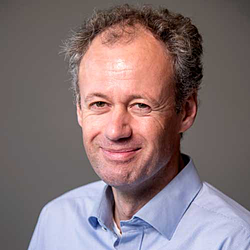During this webinar Dr. Rainer Lohmann discussed the evidence regarding the environmental and human health impacts of fluoropolymers throughout their life cycle(s). Production of some fluoropolymers is intimately linked to the use and emissions of legacy and novel PFAS as polymer processing aids. Dr. Lohmann presented the serious concerns regarding the toxicity and adverse effects of fluorinated processing aids on humans and the environment. A variety of other PFAS, including monomers and oligomers, are emitted during the production, processing, use, and end-of-life treatment of fluoropolymers. There are further concerns regarding the safe disposal of fluoropolymers and their associated products and articles at the end of their life cycle. While recycling and reuse of fluoropolymers is performed on some industrial waste, there are only limited options for their recycling from consumer articles. Given fluoropolymers’ extreme persistence; emissions associated with their production, use, and disposal; and a high likelihood for human exposure to PFAS, their production and uses should be curtailed except in cases of essential uses.
Featured Speaker
 Rainer Lohmann, PhD, is the Director of the University of Rhode Island Superfund Research Center which focuses on Sources, Transport, Exposure and Effects of PFAS. His group conducts research into the sources, transport, and bioaccumulation of anthropogenic pollutants often relying on the use of passive samplers. Other than PFASs, his research covers dioxins, PCBs, legacy pesticides and emerging contaminants. Lohmann initiated a global effort to monitor organic contaminants in the waters of the world, termed AQUA-GAPS, which started field trials in 2016. He serves as Editor for Environmental Toxicology and Chemistry. He was trained in Chemical Engineering at the Ecole Européenne des Hautes Etudes des Industries Chimiques de Strasbourg (France) and got his Ph.D. in Environmental Science from Lancaster University (UK).
Rainer Lohmann, PhD, is the Director of the University of Rhode Island Superfund Research Center which focuses on Sources, Transport, Exposure and Effects of PFAS. His group conducts research into the sources, transport, and bioaccumulation of anthropogenic pollutants often relying on the use of passive samplers. Other than PFASs, his research covers dioxins, PCBs, legacy pesticides and emerging contaminants. Lohmann initiated a global effort to monitor organic contaminants in the waters of the world, termed AQUA-GAPS, which started field trials in 2016. He serves as Editor for Environmental Toxicology and Chemistry. He was trained in Chemical Engineering at the Ecole Européenne des Hautes Etudes des Industries Chimiques de Strasbourg (France) and got his Ph.D. in Environmental Science from Lancaster University (UK).
This webinar is one in a monthly series sponsored by the EDC Strategies Partnership. The EDC Strategies Partnership is co-chaired by Sharyle Patton (Commonweal Biomonitoring Resource Center), Jerry Heindel (Commonweal HEEDS, Healthy Environment and Endocrine Disruptor Strategies), Genon Jensen (HEAL, Health and Environment Alliance), Sarah Howard (HEEDS and the Commonweal Diabetes and Environment Program), and Hannah Donart (Commonweal CHE, Collaborative on Health and the Environment). To see a full list of past calls and webinars related to EDCs and listen to or view recordings, please visit our partnership page. For updates and more information on upcoming webinars, sign up for our HEEDS, HEAL, and CHE newsletters!
This webinar was moderated by Sharyle Patton, Director of the Commonweal Biomonitoring Resource Center. It lasted for 45 minutes and was recorded for our call and webinar archive.
